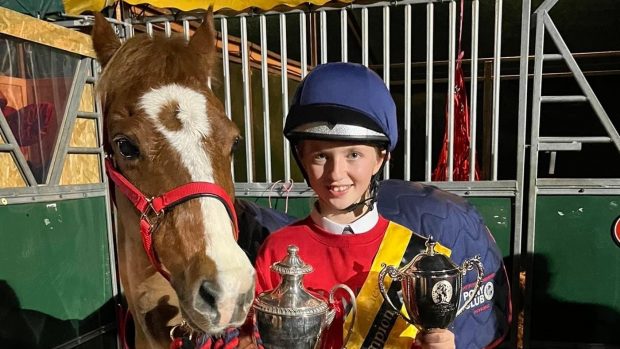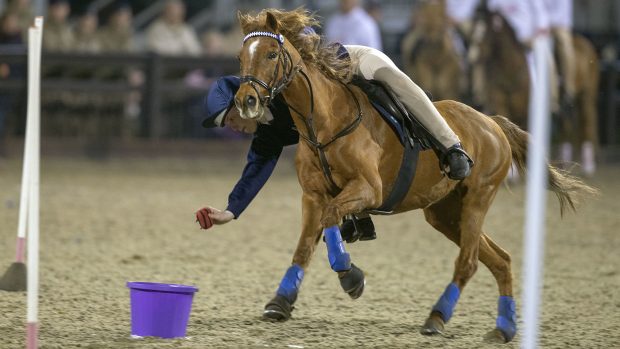As a discipline, mounted games is highly competitive, with many riders and teams battling for the top spots. Chrissie Mayes finds out how to get the edge
In order to be successful in mounted games, competitors practise for long hours, while spending time learning the rules of all the individual races. Each race has a different skill set, and understanding the characteristics of each race is important for success. The coach then has the task of putting it all together using tactical analysis.
Understanding the races
Games races can be broken down into four different categories, although many races incorporate more than one characteristic. The main categories of races include:
Skills
Being able to handle equipment and approach certain obstacles correctly is the basis of many races. Mistakes in skills races can cost the race, so practising is essential for success. Skills include placing or moving equipment on or from obstacles within the arena or dropping equipment into bins or buckets, by hand or with a cane. Occasionally riders also have to work in pairs, and need to be competent at racing in formation together.
Speed
The first team over the line wins the race, and in some races this is predominately down to speed. A team consists of five ponies and riders, but only four compete in each race. In speed races tactics play a large part; choosing your fastest combinations, and putting your fastest pairs first and last can also play a part in overall success. Speed races generally involve dealing with certain obstacles at the same time for an added dimension.
Vaulting
Being able to leap off a galloping pony and keep hold of him, then vault on at a canter is one of the most impressive skills on show in mounted games. Vaulting is a technique and once learnt goes a long way to the success of a team. It is best to learn on a pony that is easy to vault, and one that is small enough to hone the technique on. Once the rider has grasped the concept, they can usually vault on any size pony.
Usually a vaulting race involves being able to quickly control your pony after getting back on board, requiring dexterity and forward thinking from the rider, as well as obedience from the pony.
Handovers
In several races, equipment has to be collected in the arena and handed over to the outgoing rider. This is usually accomplished at speed and can make or break the overall result. Perfecting handovers is an essential skill for success, and tactics can also be employed to improve the team’s success rate. Certain ponies move sideways on the line, or back off as the incoming rider approaches them, making the handover more difficult. Perfecting handover partnerships is an important aspect of the coach’s role.
Tactics
Just as football use different combination of players in formation, so does mounted games. Tactics include combining certain riders in particular orders for different races, to play on each team player’s strengths. As already mentioned, some ponies work better together than others, so devising pony combinations is also an important tactic. Learning how ponies and riders react to certain races is also an important consideration. There is a certain amount of psychology involved in mounted games, and often a coach has to work with the riders’ minds, not just their skill sets.
Like this? You might also enjoy reading these:
You think mounted games is just for Pony Club tiny tots? Think again…
10 things to look for in your dream mounted games pony
Tip for success
Although speed is essential to win at mounted games, mistakes can cost a race. If you are making too many errors, you need to go down a gear until you have perfected your skills at that level. Only then should you consider increasing your speed. Accuracy at speed is the overall goal, but spending time building up to that aim pays dividends in the long run. To be successful at mounted games you need to practise hard, both on your own and as part of a team. You need to understand the rules in detail plus use the strengths of your individual riders for the benefit of the team. But most of all, you need determination and dedication — like all sports, being a great mounted games rider does not happen overnight.



